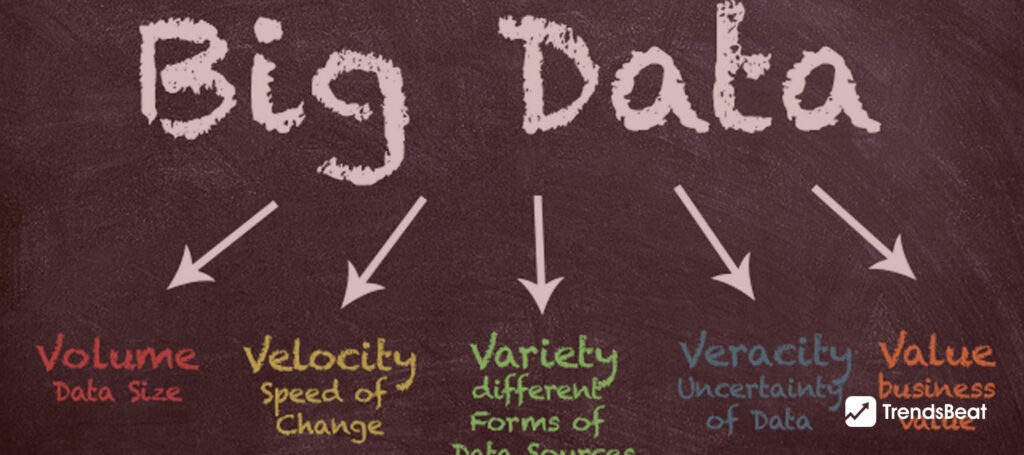What Is Big Data Analytics? How Big Data Helps in Business Growth?

Big data analytics is the use of advanced analytic techniques for very large, heterogeneous big data sets, which comprise structured, semi-structured, and unstructured data from many sources with sizes ranging from terabytes to zettabytes.
What precisely are big data and big data science? It may be characterized as data sets that are too large or too complex for typical relational databases to gather, maintain, and process with minimal latency. Big data has characteristics such as high volume, high velocity, and great variety. Because of artificial intelligence (AI), mobile devices, social media, and the Internet of Things, data sources are growing more complicated than conventional data sources (IoT).
Big data analytics may eventually enable better and quicker decision-making, model and forecast future events, and improve business intelligence. Consider open-source software like Apache Hadoop, Apache Spark, and the full Hadoop ecosystem as cost-effective, flexible data processing and storage technologies built to manage the volume of data being created today as you construct your big data solution.
What is Big Data Analytics?
The process of identifying trends, patterns, and correlations in vast volumes of raw data to make data-informed decisions is referred to as big data analytics. These procedures employ well-known statistical analysis approaches, such as clustering and regression, and apply them to larger datasets with the assistance of modern instruments. Since the early 2000s, when software and hardware capabilities enabled businesses to manage massive volumes of unstructured data, big data has been a buzzword. Since then, new technologies ranging from Amazon to cell phones have added to massive volumes of data available to enterprises. With the proliferation of data came early innovation initiatives such as Hadoop, Spark, and NoSQL databases for big data storage and processing.

This subject is evolving as data engineers seek ways to combine massive volumes of complicated information generated by sensors, networks, transactions, smart devices, online traffic, and other sources. Big data analytics methodologies are still being utilized in conjunction with developing technologies such as machine learning to uncover and scale more sophisticated insights.
Business Growth through Big Data Analytics!
Businesses producing data is not a revolutionary concept. Organizations have utilized data to inform their choices and actions for ages. However, massive data accelerate decision-making. It is based on the premise that, because of technological advancements, we generate massive volumes of data every day. The idea is to take that raw data and derive insights from it. Analytics, operational strategy, and interpretations are all part of it.
In reality, business intelligence, which regulates big data tactics, is mainly responsible for digital transformation. The area has also given rise to careers such as data analytics. Businesses that use data efficiently might discover new methods to improve their operations and activities, extending to the consumer journey.
According to experts, Big Data may open up new growth opportunities. It may even give rise to a new business sector, such as those that study and collect industrial data. The majority of these businesses will be amid massive information flows concerning services and goods, suppliers and buyers, customer intent and preferences, and other topics. Companies in all industries should begin actively developing their Big Data capabilities.
Aside from the large volume of big data, the frequency and real-time nature of data are critical. For example, before, the capacity to estimate measures such as consumer loyalty was handled retroactively. Such tactics are becoming increasingly common with the advent of Big Data.
Advantages of Big Data Analytics for Business Growth!
Every day, your consumers create a massive amount of data. These technologies capture and analyze data for your company every time customers read your email, use your mobile app, tag you on social media, come into your store, make an online purchase, speak with a customer service person, or ask a virtual assistant about you. And that’s just your clients. Employees, supply chains, marketing initiatives, finance departments, and others create a large amount of data every day. Big data is a massive amount of data and datasets that arrive in various forms and from many sources. Many companies have realized the benefits of gathering as much data as possible. But simply collecting and storing massive data isn’t enough; you also need to put it to use. Organizations may utilize big data analytics to translate gigabytes of data into useful insights thanks to fast-evolving technologies.

Big data analytics assists firms in harnessing their data and identifying new possibilities. As a result, wiser company decisions are made, operations are more efficient, earnings are greater, and consumers are happier. Businesses that employ big data and advanced analytics get benefits in a variety of ways, including:
Faster & Better Decision Making
Businesses may access a big volume of data and analyze data from a wide range of sources to obtain new insights and take action. Begin small and gradually expand to handle data from historical records and in real-time.
Cost Savings and Increased Operational Efficiency
Flexible data processing and storage solutions can assist companies in reducing expenses associated with storing and analyzing massive amounts of data. Discover trends and insights that can assist you in doing business more efficiently.
Risk Management: Companies use big data analytics to detect fraudulent activity and anomalies. It is used by the organization to narrow down a list of suspects or underlying causes of problems.
Creating And Promoting New Products And Services: The ability to measure consumer requirements and satisfaction through analytics enables organizations to provide customers with what they want when they want it. With big data analytics, more businesses may create innovative new products to fulfil the changing demands of their customers.
Few Final Thoughts
Big data analytics refers to discovering trends, patterns, and correlations in massive amounts of raw data to make data-informed choices. Big data analytics is significant because it allows firms to leverage massive volumes of data in numerous forms from various sources to detect possibilities and hazards, allowing them to respond swiftly and improve their bottom lines.















































































![Essential-Cybersecurity-Tips-for-Small-Businesses-[Protect-Your-Data]-TrendsBeat](https://trendsbeat.com/wp-content/uploads/2023/05/Essential-Cybersecurity-Tips-for-Small-Businesses-Protect-Your-Data-feature-image-template-1024x455.jpg)


















![Top Fitness Trends & Workout Routines to Follow [Stay Fit, Stay Healthy]](https://trendsbeat.com/wp-content/uploads/2023/04/feature-image-Top-Fitness-Trends-Workout-Routines-to-Follow-Stay-Fit-Stay-Healthy-1024x455.jpg)










![[Weight Loss Medication Health Effects] Side Effects and Best Advice](https://trendsbeat.com/wp-content/uploads/2023/04/feature-image-Weight-Loss-Medication-Health-Effects-Side-Effects-and-Best-Advice-1024x455.jpg)



